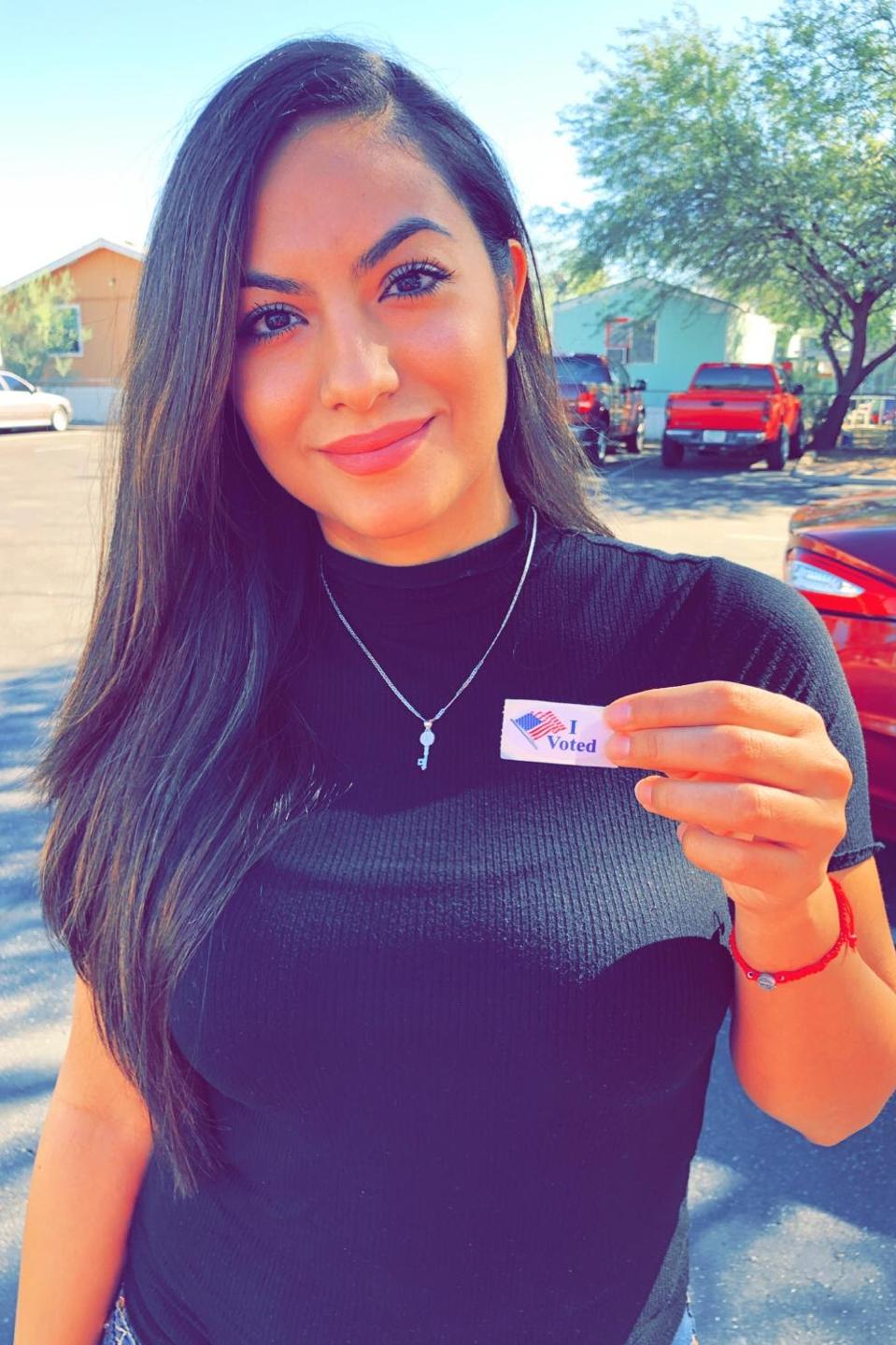Featured In Forbes Today! Relentless Centering: These Inclusive Accelerator Programs Are Encouraging The Next Generation Of AI Tech
Published on Jun 21, 2020
32 views|Jun 21, 2020,06:46pm EDTRelentless Centering: These Inclusive Accelerator Programs Are Encouraging The Next Generation Of AI Tech

Annie BrownContributorCOGNITIVE WORLDContributor GroupAIAnnie Brown is the founder of Lips, an AI and blockchain-enabled social commerce platform for women and LGBTQ creators.
One might think that in 2020 the inclusion of Black, Indigenous, POC, Women, LGBTQIA and other marginalized voices would be understood as a priority in achieving technology’s full positive potential. However, as we are forced continue to fight for equality in our physical society - the struggle to eliminate bias, discrimination and hate from our digital lives continues as well.
The good news is that there are organizations within the technology/startup sector working overtime to ensure that the next generation of advanced technologies are built by diverse teams.
One such example is Headstream, an accelerator and research organization working with teens, tech innovators and other experts to spur the development of technologies that meaningfully benefit teen mental health.
What makes Headstream so exciting and impactful, is it’s commitment to “supporting innovations that reach communities that traditionally haven’t been the focus of entrepreneurs - creating a program that welcomes and seeks out innovators who know these communities and are driven to design for them.”

Headstream Innovation
HEADSTREAMArtificial Intelligence, & Fully Automated Luxury Capitalism
This starts with creating a program that welcomes and seeks out innovators who know these communities and are driven to design for them. Headstream’s call for applications asked that innovations be inclusive: whether the innovation is accessible and relevant for a diverse set of users; particular attention to inclusivity for teens of color, LGBTQ+ teens, and teen girls.
So, by focusing on technologies built for diverse users, they also attracted a diverse pool of applicants. Out of 93 total applicants, nearly 60% identified as female or non-binary, and nearly 50% of the applicants identified as people of color.
From the 93 applicants came a final Headstream cohort of 15 Innovators. This cohort is primarily filled by women, with people of color making up nearly half of the group. The final group of Innovators include young people and entrepreneurs from multiple countries and backgrounds. In many ways, the Headstream Accelerator cohort embodies the different communities the program is driven to support.
These innovators are already inspiring the leaders in the Headstream community. “I don't want to sound trite or like a broken record, but I am truly honored and grateful to be a part of this,” shared Craig DeLarge, a digital health strategist and educator.“ From a vulnerable space, you all have helped bring more passion and excitement into my work than I have felt in a long time.”
The beauty and power of Headstream’s program was on show during their Virtual Science Fair. On a Saturday afternoon in May, amidst countless virtual graduation ceremonies and concerts, 25 young people from across the country joined the Headstream Innovators for a few hours of virtual collaboration at the Social Tech Science Fair.
Over the course of three hours, the youth participants visited various innovators at their “booths” via Zoom breakout rooms, learning about the innovations from the founders while testing out and providing feedback on the platforms, products, and services.
True innovation really lies in not just what we create per se (more advanced AIs, faster computers, etc.), but how we create it and rethinking what “advanced” or “smarter” looks like in this context. Headstream demonstrates this by their focus on social media and online communities - examples of technologies that need innovation in the form of redesign & diverse thinking focused on the needs and experiences on marginalized groups.
Hijo, GamerSafer, Evermind are all examples of AI innovations within the Headstream Program who are utilizing AI to achieve a mission of a healthier and more inclusive Internet for young people. You can learn more about these companies and the other members of Headstream’s inaugural cohort here.
Another program relentlessly centering marginalized perspectives in AI is The Women’s Innovation Fund Accelerator (WIF AX), an Opportunity Zone Fund with 3 prongs in their mission.
First, WIF AX utilizes acceleration techniques to grow and scale emerging tech companies. Second, companies must be gender balanced at the C-Level. Third, they help the companies become sustainable. WIFAX works with under-represented founders and inside the local communities to bring forth the next generation workforce, entrepreneur and investor.

WIF AX
Managing Director, Barbara Bickham states that it is important for accelerators to have a broad spectrum of founders so that the unique ways the companies are solving problems have the same opportunities for access to capital.
Bickham explains, “We create unique structures around funding, syndication and other traditional models that help under-represented founders maximize their chance to gain access to funding, as we look well into the future to how they might exit.”
WIF AX posits that inclusive accelerators are more successful, since the companies they serve tap into more global markets, and solve global problems. “Since we like gender balance, the statistics on funding women and diverse founders shows the ROIs, profitability and success KPIs are larger,” says Bickham.
Fuego Fino, Inc is one of WIF AX’s portfolio companies that uses AI and data to maximize the efficiency of their supply chain. Without AI, the traditional spreadsheet method would track all this information. It’s rife with potential mistakes, which can affect the company’s revenues. When, what and how much to order and reorder products is critical.

Fuego Fino Founder, Jessica Contreras
"We are a progressive wine and spirits house, which embraces technology. We have begun to explore the use of AI and other tech to reduce costs in our supply chain — specifically developing a smarter way of managing how alcohol retailers order and reorder our products. We also use technology to analyze in real time, the results of our marketing efforts," says Fuego Fino Founder Jessica Contreras.
Fuego Fino has successfully completed the WIF AX accelerator program and has begun to raise capital through a Regulation CF crowdfunding round.
WIF AX leads rounds for crowdfunding campaigns as part of its “Invest Alongside Our VC” inclusive-investing funding model for accelerator graduates and female founders.
Another fantastic resource for underrepresented founders building AI products is Ad Astra Ventures. Ad Astra is led by Silvia Mah, executive director of Stella Labs; Allison Long Pettine, founding partner of Seed San Diego; and Vidya Dinamani, co-founder of Product Rebels.
“Ad Astra Ventures wants to find the best founders who are building high-growth businesses and equip them with the tools necessary for continued growth,” said Mah. “Not only are we enabling businesses to thrive by focusing on success factors we’ve identified through our years of experience as investors and VCs, but we’re looking at everything we do through a female-focused lens.”
Carol Curchoe and Sonya Satveit are both founders building AI products and alumni of Ad Astra’s Founder Bootcamp.
Curchoe is the founder of ART Compass, a mobile application for IVF Practice Management. ART compass is the first application to use artificial intelligence for quality control in the IVF lab.
“We provide an integration site for any other AI product into the lab. Nothing like that exists. And we also collect expert annoyed data for AI projects - which is of itself a huge problem,” says Curchoe, “The failures in the industry are caused by having multiple incompatible systems. We are attempting to provide a single dashboard to control everything in the IVF lab.”

Vidya Dinamani, Allison Long Pettine and Silvia Mah
AD ASTRA VENTURESSatveit is the founder of Qanik DX which aims to address huge gaps in women’s hormone health. Qanik DX has created a mini-lab for the home in a connected system that consists of 3 components: QT Sensor, QT Test Cartridges, and Mobile App.
“My hope is that over time, the current standard of care will give way to a new, more personalized, standard of care,” says Satveit. “At the end of the day, we need our data. Let’s face it, our healthcare system is driven by data and if women can’t even get access to data through testing, then they are unable to access the treatments that they need or want.
Women’s health products are often underrepresented in tech startup accelerators - so Ad Astra’s emphasis on female founders means that high tech startups made for (and by) women are not only encouraged to apply, but also more likely to be accepted and receive the support they need.
“While I think that there is a moral imperative for accelerators to be actively encouraging and supporting underrepresented founders, study after study shows there is also an economic benefit,” says Satveit, elaborating on her support of inclusive accelerators.
“Since we know that underrepresented founders are less likely to have access to capital, networks and training to build and grow a successful startup – change can happen a lot quicker when accelerators bring these resources to the table. That’s a start, but in order to accelerate and transform the landscape long term for diverse founders we need ongoing support.”
While not explicitly focused on underrepresented founders, two accelerators who are also making inclusivity a priority are Boost VC and Mozilla Builders.
Boost VC’s accelerator focuses on “Sci Fi Tech” - think emerging technologies such as AI and Blockchain. Not only does the accelerator “believe the best founders have diverse perspectives, growth mindsets, and the ability to solve big challenges by thinking outside-the-box,” but they also have champions of inclusivity in their leadership.
Maddie Callander is VP, Accelerator & Portfolio at Boost VC. She is a prominent voice in the #womenintech movement as well as curates Voices of Women in VC - a playlist of podcast episodes featuring the perspectives of female leaders in venture capital. The visions and values of those in leadership matter when it comes to Accelerators, and Callander’s leadership promises a diverse membership for Tribe 14.
For Mozilla Builders, their upcoming incubator is particularly exciting, because it speaks directly to digital inequalities - an issue that many minority founders are eager to address.
In their call for applications, Mozilla Builders stated they want to “invest in people, projects, and technologies that shape the internet and have a positive impact without having to only worry about the bottom line.” This is going to be a huge draw for founders building products that address discrimination online, particularly when it comes to advanced technologies such as facial recognition or algorithmic bias.
If we have learned anything from the past few weeks of civil rights resurgence, it is that actions speak louder than words. The accelerators mentioned in this article are “walking the walk” in that they not only espouse the virtues and benefits of diversity, but are actively structuring their calls for applications, themes, programs and support to ensure BIPOC, POC, women, LGBTQIA and other historically marginalized founders/inventors feel empowered to create, build and succeed.
This is relentless centering - and it works.